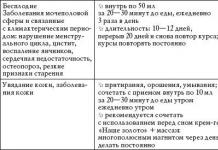Olesya1610 just relax. And let's think. Do you know of any story in which a child voluntarily starved himself to death? I haven't come across anything like that. But, mothers running with spoons, and children running from these mothers, yes. I am older than you and my child is already able to feed himself and me. Do you know who grows out of these children? People who don't eat anything. A friend of mine has just such a child. A 22-year-old guy - he doesn't want anything, he doesn't like much, he's afraid to try new things, he only eats a narrow list of dishes. I represent. how her daughter-in-law will be "grateful" to her .... Do you need it?
Therefore, let's approach sensibly, we will respect the personality in your baby and trust him. I repeat - not a single child has yet starved himself to death. But -- hunger is a very good feeling. The child should know what it is - I want to eat. Don't bother him, let him feel it. Do not force, do not offer, do not force, you may not even impose food on him. But - sit down at the table so that he sees you, say that you are hungry and want to eat, eat with appetite yourself. Our kids are still monkeys. They definitely need to take part in the common ritual Runs a day or two or three and will not go anywhere. The main thing here is your calmness and inner confidence that everything is in order with the baby.
I am speaking from my child's experience. We were at GW. Virtually no food. Of complementary foods, their greatness allowed only fruits and meat. Kashi? Eat this crap yourself. Yes, no mashed potatoes - everything is freshly prepared. And by 10 months she was already smart, even too smart for her age and concluded that she liked GW more than anything else. And that's it, kapets kitten (i.e. mom). On any attempts to give prikom - hysteria, the demand for breasts. And milk is no longer enough simply by age. GV had to be stopped at 1 year. The child did not eat anything. I even took a bottle of expressed milk only the next day after the cessation of breastfeeding. I just believed my child - I didn’t run after it, I didn’t push anything by force. I just waited, always barely in her presence, never refused if she asked. At 2y2months went to the garden. I told the educators - do not persuade, do not feed. Doesn't want to - don't. At first they said - they didn’t eat anything, but in the group we only follow her and another boy (that is, they had enough strength), then - they didn’t eat anything, but she drank both her compote and neighbors, then everything became normal. By the age of 5-6, my baby calmly sat down at the table, wrapped a bowl of borscht with a clove of garlic or onion, the meat was crushed with pleasure. Now an adult person calmly eats everything, loves to try new things. Believe your baby, he will not die of hunger and will not stop in development. Everything will be all right. Give him the opportunity to be independent.
About the relationship with mom is the main thing for each of us. From our birth to the end of her life, we go through stages of closeness and distance. I will outline several levels of relations between an adult daughter and an aging mother.
Cultural. In one African tribe, the rite of passage of adulthood goes like this: a child holds out a bowl of water to his mother, and when she raises her hand, he overturns the water on the ground. When I heard about this ritual, I imagined my mother, and a chill went down my spine. Such is the difference of cultures and perceptions.
Our children are secretly ordered to provide their parents with a decent old age. It is not only about material, but also about psychological support. Find a doctor, take her to a clinic, to a country house - the interaction is often built as if the mother not only missed her daughter, but needs help. The daughter not only wants to see her mother, but brings her medicines. We are looking for excuses for tenderness.
Economic. A pensioner may not have enough money to live on, but children are not always able to feed their parents. This gives rise to a sense of guilt in children, which results in dissatisfaction with any trifle in the behavior of the elderly. Irritation feeds on fear: what lesson are my children learning? If they see how I take care of my mother, then I will be provided with a non-lonely old age and that same glass of water. Such unexpressed experiences also interfere with the contact of generations.
Intrafamily. There are two polarities, two types of disturbances in the normal relationship between an adult daughter and mother: alienation and fusion (symbiosis). Often they have similar causes. According to statistics, the "breakdown" of the relationship between mother and daughter most often occurs in early childhood. If up to three years the daughter has not been "fed" by her mother, then a gap occurs, which, unfortunately, in most cases cannot be fully compensated later. This gap can be caused by a variety of circumstances: the need for the mother to go to work, go on a long business trip, the child's illness or her own.
Sometimes in such cases, the mother gives her daughter to be raised by her grandmother, and, no matter how caring she may be, internally this can be perceived by the daughter as a betrayal. At a more mature age, this may interfere with confidential contact with the mother. By the way, symbiotic relationships arise when separation (or breakup) was accompanied by fear (or even horror) in a child. The loss of a mother or simply separation from her subsequently becomes fixed in the mind as an unbearable experience. Returning to the mechanisms of alienation, let's name one more: a mother can be simply cold, she is not able to give. And this phenomenon may also have its own reasons.
The next difficult period in the life of a family, when alienation or symbiosis can occur, is adolescence. Often the crisis is exacerbated by tense relations between mother and father (quarrels, threat of divorce, divorce), which affect the contact between mother and daughter both in the direction of closeness and distance. It happens that in a divorce, the mother prevents the daughter from communicating with the father. In response, the girl begins to get angry and even hate her mother for depriving her of her father. In behavior, the daughter expresses her feelings in protest reactions, disobedience, and rudeness. This situation can also be perceived by the child as a betrayal and subsequently prevent confidential contact.
Even a good mother can have problems with her daughter if she... too good mother. Sometimes a parental example awakens opposing behaviors and attitudes in a teenager. If the mother does her best to maintain an exemplary level (a faithful wife, an excellent housewife, a successful professional ...), then the reaction may be the daughter's desire to move away from the standard as far as possible. For example, refusing to study, denying one's femininity, or changing partners daily - that is, defeating the mother by choosing opposing ideals. Of course, this only widens the gap between mother and child.
Every person dreams of happiness, wants to feel needed and important in life, live to the fullest and enjoy every day. Why, it seems, is everything so simple and at the same time very difficult?
It is known that self-esteem affects the feeling of comfort in life. Where does self-assessment as a person come from?
The roots of self-esteem come from childhood: how relatives, in particular the mother, evaluated the little child, his actions, his appearance, how she treated his urgent material and spiritual needs.
What is good and what is bad inside of me? This is absorbed with mother's milk and is introduced into our entire subsequent life. A mother for a small child is a mirror of himself. The mother's smile, look, tenderness, touch is taken by the little man inside himself and is formed in the form of self-assessment as a person.
Many adults, meeting with their own "I" understand that the mother was their crooked mirror. The ability to forgive and accept your childhood as it was is necessary in order to be able to correct your life, improve your relationship with the outside world and people.
Often, as adults, you have to face a choice. To take the side of the mother, to fulfill her requests, instructions or even threats, or to follow her own path, build her life according to her personal feelings, not follow the traditions of the family if they impede personal growth? This is a dilemma for every person. Feelings of repentance, anger, guilt, fear and insecurity, misunderstanding have been and are experienced not by a few, but by the majority of people.
How can you improve your relationship with your mother?
Not many people dream of a normal, mutually satisfying relationship with their mother. Here is a list of the most common states of people who are in a dead end relationship with the woman who gave them life.Lack of contact with the mother, inability to communicate, any conversation causes irritation.
. There is bitterness from the fact that on the part of the mother there is no respect for the values and decisions of grown children.
. Many mothers do not recognize the family of their son or daughter, do not accept the circle of friends and criticize people who are very close to the already grown child.
. Many adult children in their relationship with their mother feel a lack of freedom, the impossibility of separating their life from their mother's, so as not to lose her love.
. Lack of communication with the mother and mutual misunderstanding, which manifests itself in the form of constant nit-picking and criticism of everything and everyone by the mother in the life of her adult children.
. Many adult children feel awkward because they do not know how to refuse their mother, argue with her, express their opinion without being ridiculed.
. Many adults have to hide their true "I" and portray the perfection that would satisfy the mother, thereby giving up their personal plans and aspirations.
. Not so rarely, a mother requires adult children to maintain her self-confidence, that she is perfection, and she alone knows how to live correctly for her child, who is already striving to leave for a life free from motherhood.
. Many feel guilty that the mother does not receive their care, which she claims and asks for quite often.
. Troubles in young families are often associated with disappointment and conflict over the mother's relationship with her daughter-in-law or son-in-law.
. Adult children take the blame for the fact that they failed to fulfill the dreams and expectations of their mother, live with her all their lives.
. Moments of great grief come because the mother is not able to understand the pain and disappointment of adult children, sometimes you want a deep understanding from the mother of her already non-childish problems.
. Excessive dependence on the mother fixes infantility for a person, which is especially manifested in the presence of the mother and hinders the development of relations with the opposite sex.
. Many have to resent maternal egocentrism, both openly and quietly, silently, obeying it.
. Many protest against the blind "adoration" of grandchildren, ignoring their mother's own educational principles of children.
The relationship with the mother is different. Someone regrets that he could not be close to his mother in childhood, therefore, as an adult, he continues to strive for closeness with his mother. Someone regrets and accuses the mother of not preparing enough for adulthood. For some, the mother's overprotection already seems beyond tolerable.
Henry Cloud and John Townsend in The Mother Factor observe:
"The relationship with your mother not only determines your interaction with her, but also invades all areas of life. From the mother, we learn closeness, communication, the ability to maintain distance; the mother shows us how to cope with failures, anxieties, unfulfilled expectations and inadequacy of the ideal, with loss and grief; the mother determines the "quality" of the emotional component of the personality, that part of the human soul that is responsible for success in love and work.
Two kinds of problems in the relationship with the mother.
What a young child learns in his relationship with his mother affects every area of adult life. Psychological development is determined by two important factors in the relationship with the mother:1. How a mother treats a child, a teenager.
2. Like a child, a teenager responds to his mother's treatment.
God's plan is that a person learns from his mother to build relationships with people and with the world. A mother is a model for a child how to live. Even if the actions and actions of the mother are quite adequate, then the emotional component of the mother's behavior still comes to the fore. If the mother is irritated and upset, then no matter how decently she behaves, she will not be able to hide her emotional mood from the child. And many mothers do not try to manage their emotions in everyday family life.
An unbalanced mother with violent habits of responding to various situations can turn into an emotional disaster in adulthood.
A constantly angry mother will frighten the baby and the issue of intimacy with her will be especially acute and painful. In the future, it is very difficult for such an adult to maintain long-term relationships, go for rapprochement in a couple or friendship.
What to do?
Every mother or woman who is preparing to become a mother is personally responsible for her emotional health. Must devote time, finances to their personal growth and improvement.
But it will be a big mistake if you blame your mother or your undeveloped intimacy with her for all your adult failures. This is easy, but not fair to yourself, to your mother and to life in general. In the relationship with the mother, it is important to understand each individually. When re-evaluating relationships with your birth mother or significant people in your childhood, you need to appreciate and accept what these relationships have taught.
When the idea of "figuring out the past" is mentioned, it does not mean that one should go back to the past. It's just not possible. It implies the following: to make an adult mature reassessment of your relationship with your mother, to look at your childhood through the eyes of an adult, and not a small child. Many live their lives stuck on childhood memories of their mother.
We recognize that a mother is an ordinary person with her own strengths and weaknesses, with her own internal wounds, life experience, peculiar childhood memories, understanding of life. Every kid, teenager has to face the fact that he was misunderstood, disliked and underestimated.
Therefore, the first series of problems in this matter is connected with our feelings towards the mother, the insults inflicted by her, and dissatisfaction with her behavior.
The second kind of problems that can interfere with personal development is related to those patterns of behavior that were learned through relationships with mother in childhood.
The first group of problems determines how we feel about past experience.
The second group of problems is directly related to everyday behavior, which was laid down in the past but reproduced in the present.
The first kind of problem is our feelings for our mother.
Very often we expect to be treated always and everywhere the way our own mother treated us. If the mother always ran to the rescue and did not even give a chance to gain personal experience, then as an adult, it is easy to take a position of waiting in the family, at work, instead of independent active actions: waiting for someone to come and do the work, give an idea. This will replace the personal active position.
Anger against the mother, against her unjust actions is inherent in every person. The inability to express one's displeasure to the mother, lays anger in the subconscious. In adult life, anger repressed in childhood spills out on the closest people, as it becomes uncontrollable.
Very often, husbands, expressing their disagreement with their wife, subconsciously rebel against their mother. In psychology, this phenomenon is called transference. A person tends to transfer to his current relationships with people those feelings that actually belong to the past. In a proverb, this is expressed: he burned himself in milk, but blows on water.
Therefore, it is important to analyze your relationship with your mother from the perspective of an adult and be able to forgive your childhood grievances so as not to carry them into your future life. So many family relationships end in failure due to the fact that the unlived pain of childhood is brought into real family relationships. Relations with the mother must be given credit for the sake of their future.
That's what forgiveness is for.
Forgiveness is a long and meticulous work of the soul. Forgiveness means an honest, sincere examination of the problems that life presents. It is important to acquire the courage to face pain, to be ready to overcome painful inner feelings, to come to terms with the loss, to acquire the ability to let go of unjustified expectations of the past.
Many psychologies define such a process as liberation from the past. This is a definition of what was wrong and contrary to the individual development, troubles in which you were born, given the specifics of the era and the lineage of your family. All acute feelings are experienced again and released. After that, light comes into the relationship, people around are perceived in their true light.
I understand that it is easy to write about it, but incredibly difficult to do. But this is a separate topic - psychological counseling.
The second group of problems is directly related to everyday behavior, these are the patterns and ways of relationships that everyone receives in contact with their mother or loved one in childhood. Everyone learns a certain type of relationship from the earliest years of life. As adults, without hesitation, a transfer is made to their relationships with people.
Therefore, it is necessary to understand what patterns were laid in our relationship with our mother. In honest analysis, various variants of such patterns often pop up:
. avoidance of contact
. the habit of pleasing
. domination,
. passivity,
. aggressiveness,
. over control,
. mistrust or something else...
All this braids the brain like barbed wire, acts unconsciously. What was once perceived can be automatically reproduced throughout life. This is what raising children is about: they learn the way of life of their parents and build their lives on its basis.
That is why everyone is doomed to reproduce the learned patterns of attitudes and behavior until they become aware of them and are able to voluntarily change something. To do this, it is important to understand the dynamics and pattern of personal relationships with a childhood loved one and transform them into something more acceptable.
Even if everything was wonderful and smooth in childhood, it is important to recognize that mom is a completely different person, a different personality. In the Universe, two identical people simply do not exist. You can imitate your mother, you can follow her example, but you need to develop your individuality and learn to separate yourself from the mother image that is built into each of us. This process in psychology is called separation.
Separation is the separation of a child from his parents, from his family.
The life of an infant begins through the processes of fusion, but continues through the processes of separation, which begin at the cellular level, and from a certain point go to the psychological level. The birth of a child is the first significant act of separation, separation from the mother. Further, several more stages of separation can be noted: independent movement of the child, visits to children's institutions, i.e. first exits from the family into society, teenage crisis, independent adult life. Separation processes are not easy, the stages of separation can be accompanied by family crises.
It is clear that overprotective parents will not give their children the opportunity to take independent steps. Separation may stop, and parents will enjoy peace and joy from the success of a growing child for a couple more years. Separation can begin much later, far beyond 20, when life will put forward completely different tasks for the young man: building a career and family life. Separation that has not been completed, and sometimes has not begun, will drag out time for personal development. People who have not passed the separation from their parents in time have great difficulties in building a personal family life.
Another option: the separation can be strangled at the root. Parents are waiting for old age with their ungrown son or daughter. It will be difficult, and sometimes impossible, to force you to take a step into your personal life after 30. So 30-40 year old sons and daughters will continue to live with their parents. Sometimes peacefully, sometimes with fighting and war.
During separation, young people separate themselves from their family primarily in order to feel like adults. Separation from the parent nest very strongly involves the emotional sphere. Therefore, often everything happens with conflicts, resistances, rebellion, diseases. This is how personal independence is formed, and the first confident steps towards personal freedom are taken. Separating from their parents, young people are looking for support in society: friends, colleagues, like-minded people, clubs of interest ...
At this time of separation, the feeling of anxiety intensifies. Anxiety visits both a teenager and parents. Parents are still in charge here. Therefore, it is important to understand what happens in the family when a teenager demands more rights and asks for more freedom. If parents have the ability to cope with their anxiety, children feel it and accept everything that happens to them, it becomes easier for them when they leave the family, it is acceptable to return to their parent for a hint.
Most clearly violations of separation processes are seen when it becomes necessary to create a family.
Joining the parental family does not leave room for new emotionally rich relationships. If a man is the son of his parents, it is difficult for him to be the husband of his wife, especially in cases where the wife does not want to be "second". The thing is that his relationship with his parents remained intense at the same time (it doesn’t matter if they are in conflict or not). For example, he lives alone with his mother, wants to have his own family, but this does not work out in any way. Falls in love very rarely and sluggishly. Much more intense are the experiences associated with the relationship with the mother. Their main content is rivalry and claims.
Separation also affects the choice of a marriage partner. A young woman who is under the strong influence of her mother and suffers from this is very likely to choose a young man who, in her opinion, can tear her away from her mother and protect her from maternal influence. Usually this is a man who does not find a common language with his mother, which is not accepted in the girl's family. This will then lead to divorce. Often in such cases, the young woman returns to her parental family with a child. This, in a sense, solves her problems of separation from her mother. She pays off her mother with a child, and gets freedom. In systemic family therapy, such a child is called a substitute. He replaces his mother in relations with his grandmother, performs her functions, and in this sense he does not live his own life.
It is clear that maternal behavior is distorted in such a development of events, the mother moves away from the child, the processes of attachment are violated, as well as the processes of the mental development of the child.
Closeness without reproach
 Let's return to the mother-daughter relationship, which we talked about at the beginning of the article. An important condition here is the balance of the mother-daughter relationship with other forms of activity for both. For a daughter, this is her relationship with her children and her husband, her work and hobbies. For a mother, also, a daughter should not be the only meaning of life, let there be time for her husband, girlfriends, former colleagues, cultural life.
Let's return to the mother-daughter relationship, which we talked about at the beginning of the article. An important condition here is the balance of the mother-daughter relationship with other forms of activity for both. For a daughter, this is her relationship with her children and her husband, her work and hobbies. For a mother, also, a daughter should not be the only meaning of life, let there be time for her husband, girlfriends, former colleagues, cultural life. It happens that a daughter complains: "My mother does not want anything, she has no interests, she has lost contact with her acquaintances." For me, these are maneuvers, because relationships are the fruit of the efforts of two. The mother is trying to attract her daughter, and she feels that she is always needed, not alone.
It is important to free the relationship from excessive expectations, worries and reproaches. Sometimes it’s enough just to pick up the phone and call, and the separation will be experienced without anxiety.
Sometimes we look at our parents with eyes full of fear: loss, our own old age and death. Then we also see more and more wrinkles, gray hair… Or maybe other eyes.
Sometimes I give clients a task: I ask my adult daughter to regularly visit her mother and, sitting on the floor at her feet, bowing her head to her mother’s hands, ask her to tell about her childhood, about meeting her dad, about his courtship. And listen, and at the same time run your hand along my mother's hand. And then we look at mom with different eyes - full of tenderness and gratitude. And we appreciate the rare moments when we can look up and be glad that this hand exists, even if it is wrinkled...
Feelings take time to arise and grow. Often they live very effectively, but do not have time to live emotionally. life. Not only to rejoice, but also to mourn once. Their life passes as in a tunnel - only light in the form of some kind of goal. If you live like this for a long time, addictions will appear - from shopping mania to alcoholism. When such a mother meets a child, she feels like a stranger. She is depressed and in a bad mood. He cannot share the nuances of the feelings that the child lives with, sympathize, rejoice, just be together. It takes time to fix it, and she's always busy.
The second problem is analytics instead of feelings. Often business women are engaged in analytics, and this is not a female Job. They don't feel, they think. To be effective, they need logic, a cold mind. Children live according to the logic of the heart - completely different, although just as tough. Many of my clients have feelings of guilt. They cannot play together with their children, like good mothers: laying stones or reading. And if they are also recently divorced, they experience their loss and are unable to rejoice with the child.
The third problem is the race for the result. In business, there is a rigid setting: the result at any cost. Subordinates should work as selflessly as the boss. Rejecting yourself, not thinking about yourself. An aggressive and ruthless attitude is involuntarily transferred to the child. They demand results from him already in kindergarten. They hire tutors and even speak like a subordinate. It's good that a child is raised ambitious. It's bad that they force you to treat yourself cruelly. Such children sincerely believe that their value is equal to their usefulness. In the relationship between mother and child, this is wrong and incomprehensible. It depends on his mother whether he can love life, despite the trials and losses. This is impossible if the mother treats the child pragmatically.
A few tips for busy moms. First, you need to take time planning seriously. Leave it for as long as you need to, so that you and the child are well. There are children who need to be silent for an hour with their mother before they tell her about the problem. It is important not to press: “Come on, tell me quickly!” – but leave space for him to speak for himself. And make it clear that there is time for him. Secondly, to instill in the child a positive attitude towards life. Mom can not play with the child? But she can take it with her to where she is happy! Mom likes to cook - and the child feels good next to her. I like to drive a car - and the child will like it. Children joyfully and fearlessly ski from the mountains, seeing that parents happy. Thirdly, to teach him to enjoy what cannot be bought. Watch the sunset from the balcony, feed the birds in winter, watch the flower bloom on the windowsill. This forms the love of life, no matter what. And fourthly, a child needs a happy mother, and if she is happy, she will give the child everything he needs.
And ways to solve problems in the field of "career- family" exist. The main thing is to be consistent, sensitive and attentive.
1. Discuss and schedule time together in advance so your child knows it's reserved for them. Keep promises. Don't cancel plans at the last minute. The worst thing is when the child is led by the nose all the time and the mother becomes a mythical figure. A mother can be inaccessible and incomprehensible for everyone, but for a child - warm, stable and always available.
2. Don't make your meetings "exclusive". It's normal for parents to interact with their children. Therefore, do not turn your meetings into pure holidays. Better spend the weekend together. Do not patronize the child, but cooperate.
3. Don't be afraid to take on a babysitter. There is nothing terrible about her. But it takes time for a new person to settle down. The child is badly affected by the frequent change of nannies - he does not form stable attachments, which is also fraught with future conflicts.
4. Breastfeed your baby. More important than all gifts is emotional contact. A year and a half is the minimum you need to be with a child. A year is also good, bad - two months.
5. Do not shower your child with gifts. You can not pay off the child, compensating for his absence. As a result, the child will become very apathetic, and the mother will go to a psychologist for advice, because the child began to study poorly, contact with the parents went wrong.
7. Don't torture yourself needlessly. If you disappear at work, you are not a bad mother, but the situation is bad. Sometimes the mother is the main breadwinner in the family. Our women, against the backdrop of perestroika processes, behaved actively. This did not affect the families in the best way: the children are fed, but without supervision. But if the mother stops earning money and stays at home, the child may develop a “poor family complex”. By the way, many housewives do not have contact with children.
8. Do not isolate yourself in the family. A working mom is better than a housewife. If a woman becomes a housewife, her social circle is limited, her interests narrow. This is bad for the mother and for the socialization of the child. She is psychologically sinking, she needs less and less, she does not care how she is dressed. If there is money, then these are endless hairdressing and shopping. And such a mother still does not have time for a child.


































